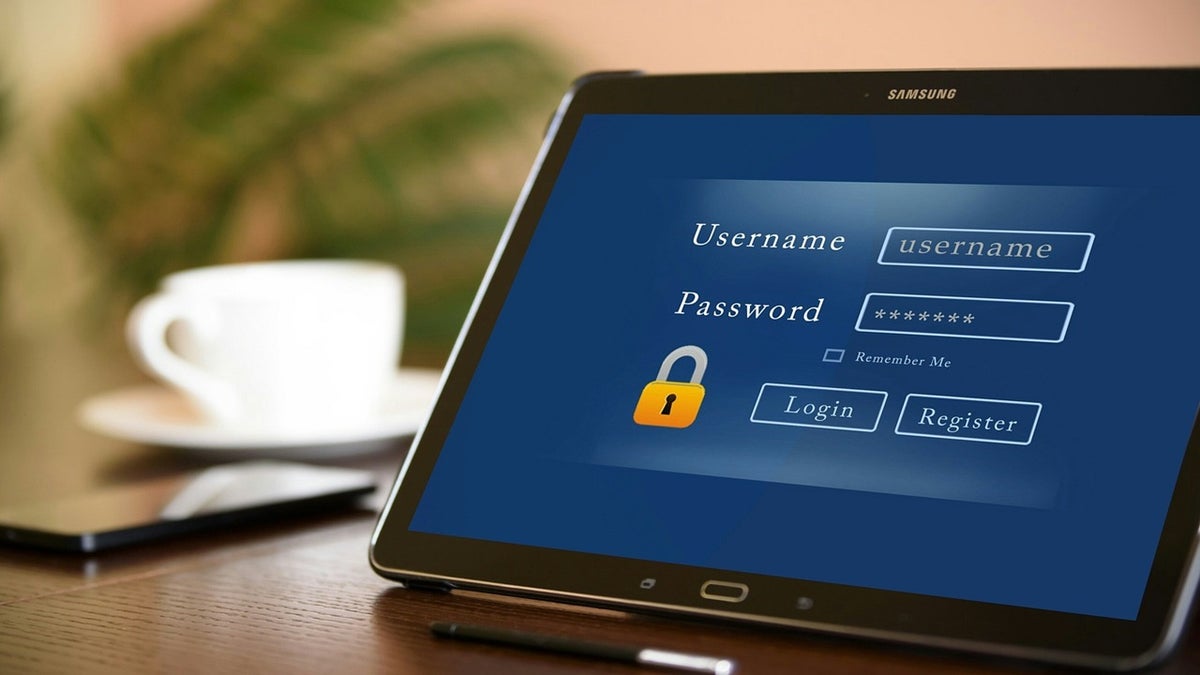Imagine an internet where your data can’t be stolen, your messages are completely private and online security is unbreakable. That’s the promise of quantum internet: a futuristic technology that could completely change how we connect online.
Here’s a look at what quantum internet is, how it works and why it might be the future of online security.

Illustration of future tech (Kurt "CyberGuy" Knutsson)
What is quantum internet?
Quantum internet is a next-generation network that uses the power of physics to send data in a way that’s ultra-secure and computationally infeasible to hack. Quantum internet, quantum networks and quantum communication are all connected but have different roles.
Quantum internet refers to the entire system that allows ultra-secure communication. Quantum networks are the infrastructure that connect quantum devices. Quantum communication is the actual exchange of information over these networks. Unlike today’s internet, which sends data as either a 0 or a 1, quantum internet relies on quantum bits, or qubits, which can exist as both 0 and 1 at the same time.
This results in an encryption method that is nearly impossible to break, making it one of the most secure ways to communicate. What makes quantum internet even safer is a phenomenon called entanglement. When qubits become entangled, they stay connected no matter how far apart they are. If one qubit is changed, the other changes instantly. Any attempt to disrupt the entanglement, such as hacking, would immediately alert both people communicating.

Man surfing the internet on his laptop (Kurt "CyberGuy" Knutsson)
SELLING ON THE INTERNET? BEWARE OF SNEAKY TACTICS SCAMMERS USE TO TRICK YOU
How quantum internet promises ultra-secure communication
One of the biggest breakthroughs of quantum internet is its potential to eliminate hacking and data breaches. Here’s how.
- Quantum key distribution: This technology allows two users to share encryption keys in a way that physically prevents third-party interference. If a hacker tries to intercept the data, the system detects it immediately and blocks unauthorized access.
- Unhackable networks: Traditional encryption relies on complex math problems that could eventually be cracked by powerful computers. Quantum internet uses the laws of physics to secure data, making it resistant to even the most advanced cyberattacks.
- True end-to-end security: Normally, data travels through multiple servers, making it more vulnerable to attacks. Quantum communication, however, creates a direct link between sender and receiver, eliminating interception risks.
What quantum internet could mean for online privacy and security
Quantum internet could completely redefine online privacy, making it harder for hackers, corporations or even governments to access personal data. Here’s how it could transform your online experience.
- Unbreakable encryption for everyday users: Imagine sending an email or making an online purchase without worrying about hackers getting to your data. Quantum encryption is so advanced that it’s practically impossible to crack, keeping your passwords, banking details and personal files safer than ever.
- A new standard for digital privacy: Today, encrypted messages, unfortunately, can sometimes be accessed by service providers. Quantum internet removes that risk by ensuring only the sender and receiver can read a message, so not even the hosting platform can access it.
- Staying ahead of cyber threats: Hackers are constantly finding new ways to crack traditional encryption. Quantum internet is designed to be resistant to these threats, making data breaches nearly impossible.

Tablet showing a username and password screen (Kurt "CyberGuy" Knutsson)
HOW TO SPEED UP YOUR WI-FI AND INTERNET CONNECTION
Challenges and the road ahead
While the potential of quantum internet is exciting, there are still hurdles to overcome. The technology is still in early development, with most experiments confined to research labs. Unlike the traditional internet, quantum networks need specialized equipment to keep signals strong across cities or even countries. Developing this technology requires massive investments and breakthroughs before quantum internet can become widely available. Another key challenge is the transition from today’s internet to quantum internet.
Since most existing technology is built for current networks, the shift won’t happen overnight. Instead, hybrid systems that combine elements of both traditional and quantum communication can serve as a bridge, helping businesses, governments and everyday users to adapt without disrupting the current digital infrastructure.
Despite these challenges, progress is happening. Major countries, including the U.S., are investing heavily in quantum research, and scientists have successfully demonstrated that the technology works. While it may take years before quantum internet reaches everyday users, these breakthroughs are laying the foundation for a safer, more private digital future.
Ways to stay safe while surfing the internet
While quantum internet is a ways away, it's important to stay safe on the internet we use today. Until that new technology arrives, here are a few ways to protect yourself online.
1) Have strong antivirus software: Until a more secure internet becomes available, it's important to use tools that help protect against everyday threats like unsafe links and malware. The best way to safeguard yourself from malicious links that install malware, potentially accessing your private information, is to have antivirus software installed on all your devices. This protection can also alert you to phishing emails and ransomware scams, keeping your personal information and digital assets safe. Get my picks for the best 2025 antivirus protection winners for your Windows, Mac, Android and iOS devices.
2) Be careful when using public Wi-Fi: Public Wi-Fi remains one of the easiest ways for hackers to access your data. The temptations and risks of free Wi-Fi make it important to think twice before connecting to an unsecured network. Avoid logging into sensitive accounts or entering personal details unless you're using a VPN or other form of encryption.
3) Use a VPN: Consider using a VPN to protect against hackers snooping on your device as well. VPNs will protect you from those who want to track and identify your potential location and the websites that you visit. A reliable VPN is essential for protecting your online privacy and ensuring a secure, high-speed connection. For the best VPN software, see my expert review of the best VPNs for browsing the web privately on your Windows, Mac, Android and iOS devices.
4) Invest in personal data removal services: While no service promises to remove all your data from the internet, having a removal service is great if you want to constantly monitor and automate the process of removing your information from hundreds of sites continuously over a longer period of time. Check out my top picks for data removal services here.
5) Enable two-factor authentication (2FA): Until more advanced security becomes mainstream, 2FA is a simple way to protect your accounts. It adds an extra layer of security by requiring a second step to log in, like a code sent to your phone. For even stronger protection, consider using a security key that plugs into your device.
Kurt’s key takeaways
Quantum internet represents a large shift in how we think about communication, privacy and security. By harnessing the power of physics, it promises to create a network that’s faster, more secure and more private than anything we’ve seen before. While the technology is still emerging, it has the potential to change the internet forever.
What are your initial reactions to the concept of quantum internet? Are you excited, skeptical or concerned, and why? Let us know by writing us at Cyberguy.com/Contact.
For more of my tech tips and security alerts, subscribe to my free CyberGuy Report Newsletter by heading to Cyberguy.com/Newsletter.
Ask Kurt a question or let us know what stories you'd like us to cover.
Follow Kurt on his social channels:
Answers to the most-asked CyberGuy questions:
- What is the best way to protect your Mac, Windows, iPhone and Android devices from getting hacked?
- What is the best way to stay private, secure and anonymous while browsing the web?
- How can I get rid of robocalls with apps and data removal services?
- How do I remove my private data from the internet?
New from Kurt:
- Try CyberGuy's new games (crosswords, word searches, trivia and more!)
- CyberGuy's exclusive coupons and deals
Copyright 2025 CyberGuy.com. All rights reserved.
Kurt "CyberGuy" Knutsson is an award-winning tech journalist who has a deep love of technology, gear and gadgets that make life better with his contributions for Fox News & FOX Business beginning mornings on "FOX & Friends." Got a tech question? Get Kurt’s free CyberGuy Newsletter, share your voice, a story idea or comment at CyberGuy.com.

 1 day ago
8
1 day ago
8













































